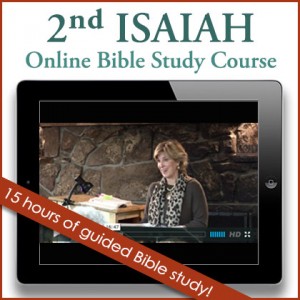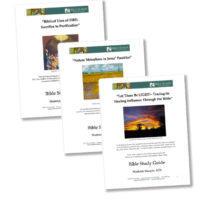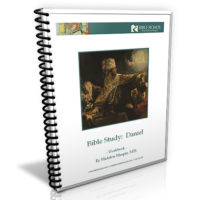In 2013 I spent five days in the stunning Colorado Rocky Mountains studying the middle chapters of Isaiah with 50 fellow Bible students. The background you’re seeing on the above video is from the lodge where we spent about five hours a day pouring over the chapters, sharing insights, working to understand the themes, history, context with my Bible study group. Why? Because many of us have found, as perhaps you have, that there is something very special that occurs when we sit down with others to see how the Scriptures are talking to us today. Not only are our own insights enriched and expanded, but the sense of fellowship, friendship, even awe, that comes from the many ‘holy ground’ moments of immersion in the Word, is like no other experience. “I rejoice at thy word”, writes the Psalmist (119:162), and what joy it gives as we explore God’s Word more deeply.
I often get asked for ideas about how to organize a Bible study group. Here are some ideas that may be helpful to get you started:
- How many should be involved? Think about starting with a small group, maybe 6 – 8. You might want to ‘find your footing’ before opening it to people of all denominations in your community. One of the challenges is learning how to really delve into the text and let it teach us, describing what we read in our own language, vs. denominational language that some are used to using. As groups become more proficient at using Biblical language or their own, free of denominational ‘speak’, then opening it to others can be a great blessing for all.
- Where do we meet? Hold it in participants’ homes or at a Reading Room or Sunday School if church members agree.
- How often do you meet? It completely depends on people’s availability. Some groups find that starting with once a month meetings, perhaps 2 hours at a time, is just about right. Others find that is too infrequent and go to a bi-weekly model. And some groups love this study so much that they agree to meet weekly. Whichever is right for you, you may want to start less frequently and scale UP rather than back, if modifications need to be made.
- How much of the Bible do we cover at each meeting? Many have found that about a chapter an hour is as fast as they want to go. Much faster and you’re unable to plumb the depths of a verse – each one so rich that you want to really delve into it. A number of groups find that two hours, or two chapters per meeting, is just about right.
- How do we best prepare? Again, this depends on your group’s preferences. Some choose to follow a guideline, like “Foundation Stones”, published by Bible Study Seminars and available at their website. These provide both background and study questions, but do not go consecutively chapter by chapter. Other groups choose to have a facilitator prepare five or so study questions per chapter, send them out ahead of time via email, then each one comes prepared with their answers. People may find different translations and commentaries helpful in their study and their monthly or bi-weekly meetings become a way of sharing. Of course we’re relying on prayer to illumine these texts but the Bible study is often just to help people understand the context and background for each book, and that helps us penetrate the spiritual meaning of the verses.
- Where would I find study questions if I don’t have time or interest in writing my own? Check out the shop page on this website to find workbooks for those Bible Study groups that want background and study questions per chapter. If there is an accompanying audio track, some Bible Study groups will get that and play it ahead of their study to amplify the book being studied.)
 Interested in having a very specific recommendation on where to start with your new Bible study group? You might want to check out the newly released Bible Roads 2nd Isaiah Online Bible Study Course which is a 12 hour video recording of the aforementioned Colorado Bible study group (and comes complete with its very own virtual facilitator).
Interested in having a very specific recommendation on where to start with your new Bible study group? You might want to check out the newly released Bible Roads 2nd Isaiah Online Bible Study Course which is a 12 hour video recording of the aforementioned Colorado Bible study group (and comes complete with its very own virtual facilitator).
If you have any suggestions or experiences you would like to share about organizing Bible study groups or if you have any additional questions about how to proceed, please comment below.



